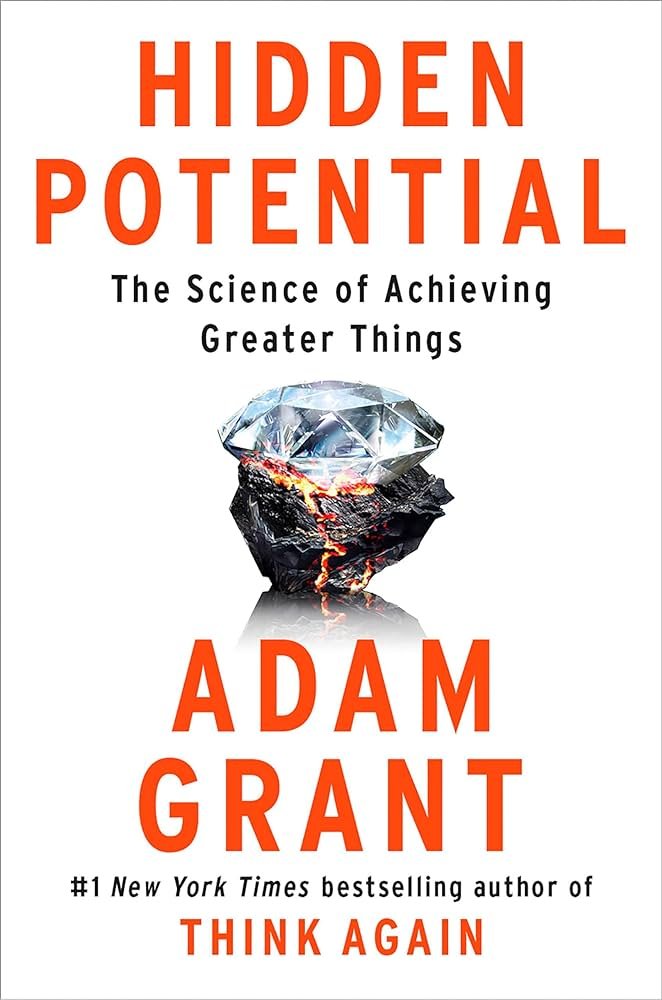Hidden Potential by Adam Grant
Date read: 8/9/24. Recommendation: 8/10.
This is a great complementary book to Range by David Epstein, that focuses on dispelling the belief that greatness is mostly born. Grant illuminates how we can achieve greater things by focusing on the forces fueling our progress. The book is built around three sections: developing character skills, creating structures to sustain motivation, and building systems to expand opportunity. I love the sections about asking for advice, not feedback, character vs. personality, and the power of writing to clarify your thinking. Check out my notes below or Amazon for details and reviews.
My Notes:
Character:
“Character is often confused with personality, but they’re not the same. Personality is your predisposition—your basic instincts for how to think, feel, and act. Character is your capacity to prioritize your values over your instincts.” Adam Grant
“If personality is how you respond on a typical day, character is how you show up on a hard day.” Adam Grant
The primary character skills that matter most are proactivity, determination, and discipline.
Discomfort:
“Character cannot be developed in ease and quiet. Only through experiences of trial and suffering can the soul be strengthened, vision cleared, ambition inspired, and success achieved.” Helen Keller
Becoming a creature of discomfort requires three kinds of courage: “to abandon your tried-and-true methods, to put yourself in the ring before you feel ready, and to make more mistakes than others make attempts.” Adam Grant
Similar to voluntary hardship: “Embrace, seek, and amplify discomfort.” Adam Grant
Writing:
“Writing is more than a vehicle for communicating—it’s a tool for learning. Writing exposes gaps in your knowledge and logic. It pushes you to articulate assumptions and consider counterarguments.” Adam Grant
“Unclear writing is a sign of unclear thinking.” Adam Grant
Reading:
Reading improves comprehension and activates analytical processing. Reading is the key to building critical thinking skills. While listening helps promote more intuitive thinking.
Pay attention to what you pay attention to: “If we want our kids to enjoy reading, we need to make books part of their lives. That involves talking about books during meals and car rides, visiting libraries or book stores, giving books as gifts, and letting them see us read. Children pay attention to our attention: where we focus tells them what we prize.” Adam Grant
Growth mindset:
Absorptive capacity: “Absorptive capacity is the ability to recognize, value, assimilate, and apply new information.” It hinges on how well you acquire new information and the goal you’re pursuing when you filter new information—ego or growth?
Seek advice, not feedback:
People suck at giving feedback, it focuses on past performance. Instead, ask for advice, and it shifts people’s mindset to focus on more specific suggestions and constructive input.

